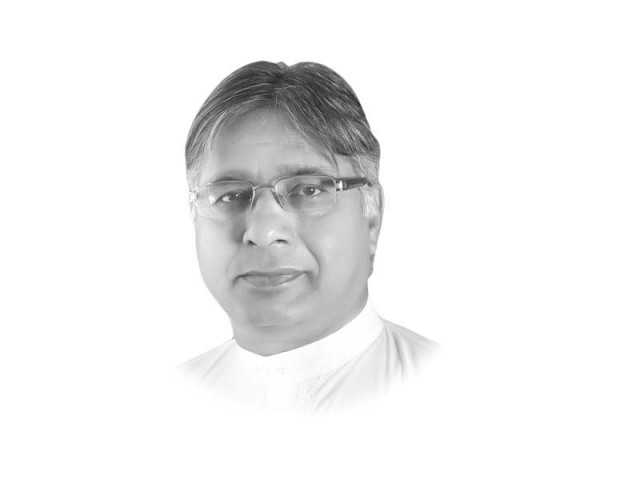UPR: an opportunity or just an event?
Conclusion of UPR was trivialised as Pakistan refused to accept most of substantial recommendations

The writer can be reached at jacobpete@gmail.com
All UN member countries can participate in the deliberations and make recommendations while 47 member countries will determine the substance of the recommendations in a working group session in November 2017. The troika of Latvia, Egypt and Iraq will facilitate the process entailing the adoption of the final recommendations next spring.
Combining the influence in international politics and practices in diplomacy, Pakistan has been able to resist or refuse to accept the recommendations of the UN bodies. During the first UPR review in 2008, when the PPP was in power, the delegation chose to keep silent about rights violations that Gen Pervez Musharraf’s regime could be held accountable for. Pakistan’s delegation comprising members of parliament and our mission to the UN dismissed all major concerns about rights abuses against women and religious minorities. In sum, the delegation received a margin of appreciation at the UN Human Rights Council in the assessment only because it represented a democratically-elected government.
In the next review in 2012, it was hard to defend allegations of enforced disappearances, abuse of women’s rights, attacks on journalists, lawyers and religious minorities. The assassinations of Governor Salman Taseer and Minister Shahbaz Bhatti in 2011 on account of defending blasphemy law victims weakened the case. However, Pakistan dispatched an empowered delegation to Geneva, including the eloquent Foreign Minister Hina Rabbani Khar and Dr Paul Bhatti. The conclusion of the UPR was trivialised as Pakistan refused to accept most of the substantial recommendations.
Out of 167 recommendations finalised by the working group of the Human Rights Council in March 2013, Pakistan accepted 126 recommendations, noted 34 and rejected seven dealing with enforced disappearances, reforms in justice and education systems and the blasphemy laws. A mid-term assessment carried out by the Human Rights Commission of Pakistan in 2015-2016 noted that out of 67 recommendations accepted by Pakistan, 38 or 57 per cent had not been complied with.
Our foreign service has developed a capacity to defend whatever situation prevails at home. Tactics such as denying facts on the ground, defying procedures for a meaningful review and deflecting attention from the genuine issues were used to avoid a substantial outcome of international review.
Unfortunately, the people of Pakistan, who happen to be the primary stakeholders, will have no say in the proceedings and will probably remain uninformed of the discussions and the outcomes. The NGOs representing peoples’ interest in enforcement of rights have made 20 written submissions to the UPR yet it is only the government functionaries who will ultimately decide whether and which recommendations, will be accepted. Hence, the outcome of the whole exercise will depend entirely on the sweet will of a few.
In order to construct a social and political road map for reforms, Pakistan needs exactly the opposite to happen. Therefore, an optimal use of the UPR should be made to realise the dream of dignified living, freedoms and human rights for Pakistanis. Foreign Minister Khawaja Asif should advise his ministry to consult rights-based groups regarding adoption of the recommendations as well. We need to accept more meaningful and result-oriented recommendations to enhance respect and protection for human rights.
Published in The Express Tribune, November 12th, 2017.
Like Opinion & Editorial on Facebook, follow @ETOpEd on Twitter to receive all updates on all our daily pieces.















COMMENTS
Comments are moderated and generally will be posted if they are on-topic and not abusive.
For more information, please see our Comments FAQ